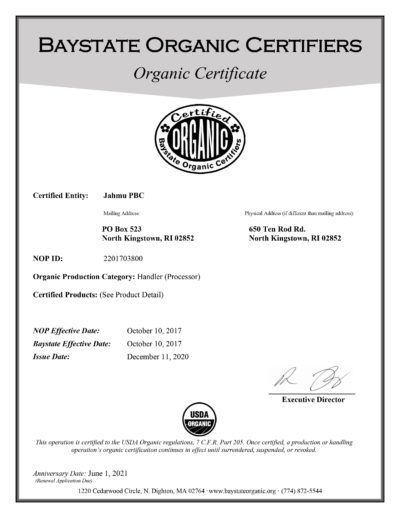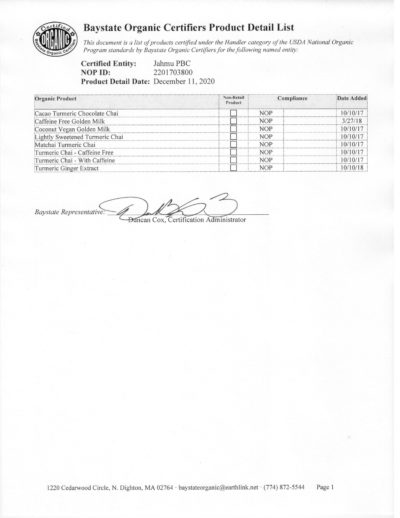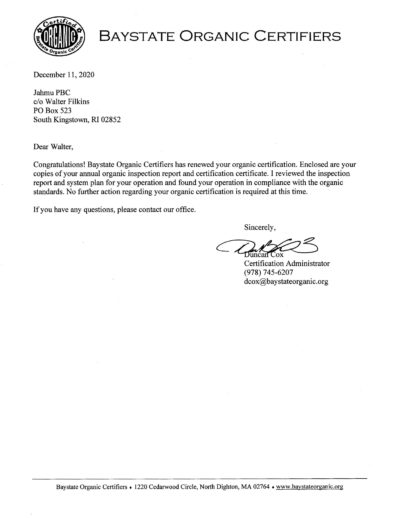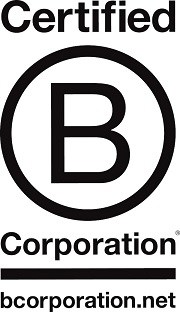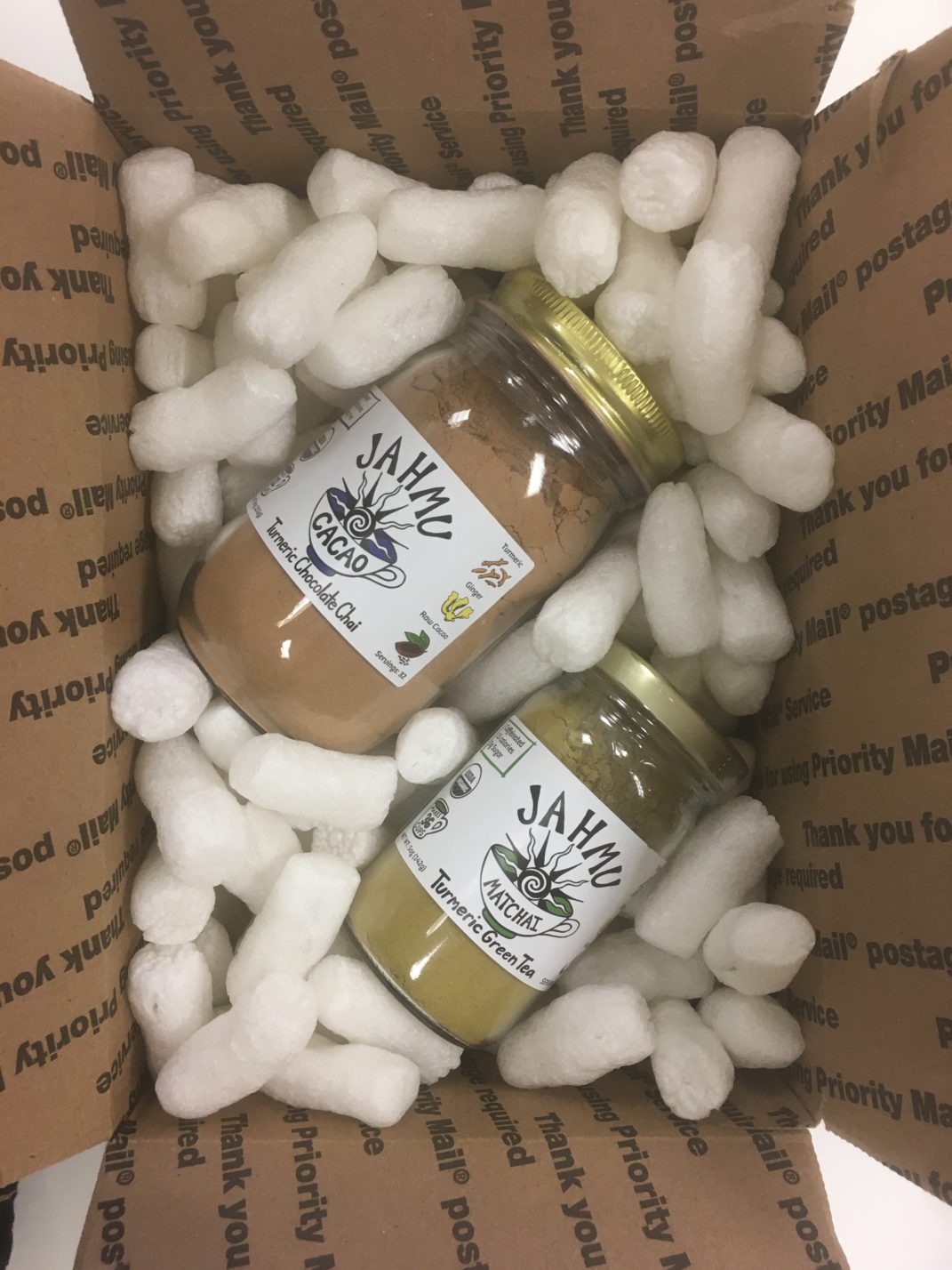In effort to minimize our impact on the environment our products do not have secondary packaging. Why put Jahmu in a jar in a box with padding in a box with padding? Sounds redundant. All of our products are packed into glass jars with labels that can be removed fairly easily. This way you can reuse or recycle the jar when you’ve run out of Jahmu. Furthermore, one jar of Jahmu can make numerous cups of tea with out all of the packaging that goes into single server products.
For many orders, we are now re-using packing peanuts that we receive when we buy jars. These packing peanuts are starch-based and water-soluble so they can be dissolved in your sink or even tossed into your compost.
In order to keep shipping costs down, for small orders we have been using bubble wrap, eco lite mailers, and USPS supplied boxes and poly-mailers. We hope you can reuse the bubble wrap. Recycling bubble wrap and padded envelopes is like recycling plastic bags – it may need to be taken to a special recycling location and cant simply be tossed in your household recycling bin. We have recently gotten samples of 100% recycled packaging and are working towards a more environmentally friendly yet affordable solution for shipping small jars.
We are required to put USDA organic on our packaging. We’ve chosen to use stamps not stickers. One ink pad lasts us months and yields thousands of stamps.
For wholesale orders please excuse the appearance of our because we re-use a wide variety of the packing materials including air bladders, recycled paper, bubble wrap, packing peanuts and boxes.
We’ve been using Earth Hugger shipping tape, which I believe is made in North America from 50% recycled materials.

